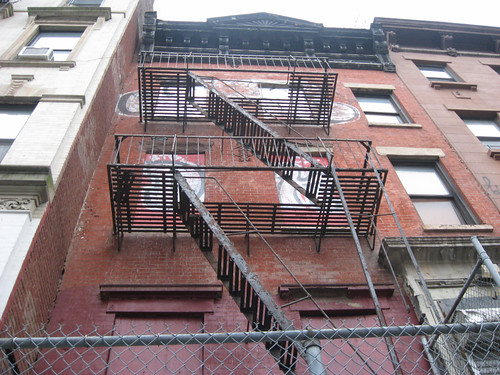If Steve Herrick, Carl Siciliano and the late Bea Arthur have their way, a long-neglected, city-owned house at 222 East East 13th Street will be converted into a refuge for gay, lesbian and transgender kids living on the streets.
The respective executive directors of the Cooper Square Committee and the Ali Forney Center hope that their proposal for a transitional housing center — funded by a $300,000 donation from the late “Golden Girls” star — will resonate with the Department of Housing Preservation and Development, which has owned the dilapidated property since 1993. As part of the effort to generate community support, representatives from both groups will pitch their idea for the Bea Arthur Residence For L.G.B.T. Youth at next month’s meeting of the Community Board 3 Land Use Committee.
“We’re in a societal moment when young people are coming out of closet at younger ages. Unfortunately, there are thousands of parents that aren’t able to be parents to L.G.B.T. children,” said Mr. Siciliano. “The kids that would live there are stable, they don’t need any kind of intense treatment. They just need an opportunity to get back on their feet and move on with their lives.”
Under the proposal, the city would give the Cooper Square Committee control over the site, which would then apply for funding from the state. The Ali Forney Center — which already runs centers for gay, lesbian and bisexual youths in Brooklyn and Manhattan — would then manage the residence that could accommodate 12 to 18 people. The youths living there would be required to work, finish high school, and be strongly urged to attend college.
 Alan Light Bea Arthur, seen here with Angela Lansbury in 1989, left $300,000 to the Ali Forney Center in her will.
Alan Light Bea Arthur, seen here with Angela Lansbury in 1989, left $300,000 to the Ali Forney Center in her will.Mr. Herrick said that he expected most locals would welcome the idea of putting the run-down building to good use, which some speculated was haunted (around Halloween, of course). “It’s an eyesore on the block,” he said. “We wouldn’t just renovate the building, but also serve a needy population and give quality services.”
Convincing the East Village — a neighborhood with a rich history of queer culture at places like the Pyramid Club and on the Bowery — likely isn’t the biggest hurdle supporters of the project will face. Rather, the challenge will be persuading the Department of Housing Preservation and Development.
A spokesman for the department signaled that it would be open to the proposal. “We are willing to speak with any group or developer who has a viable plan for creating affordable housing at this site,” he said.




